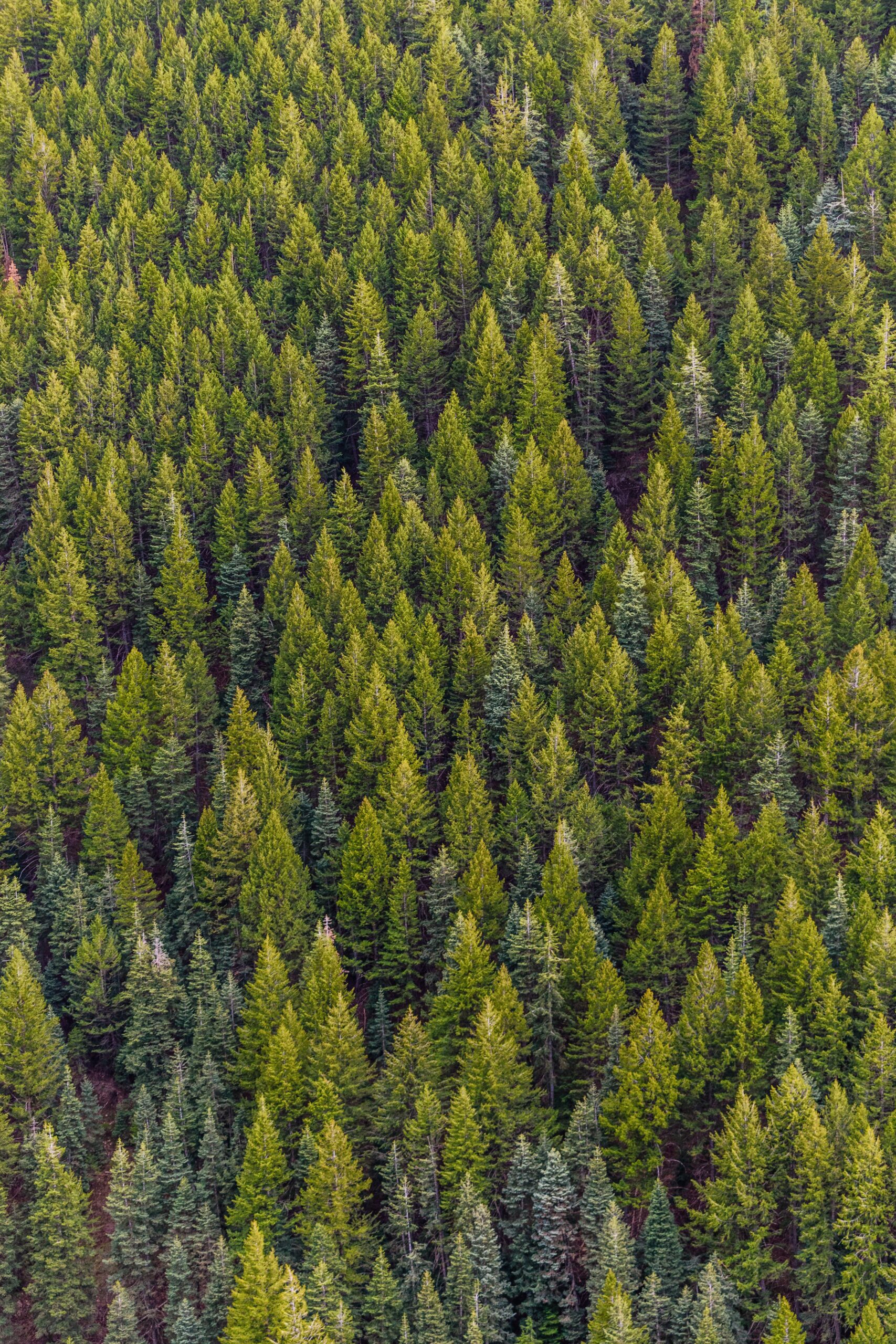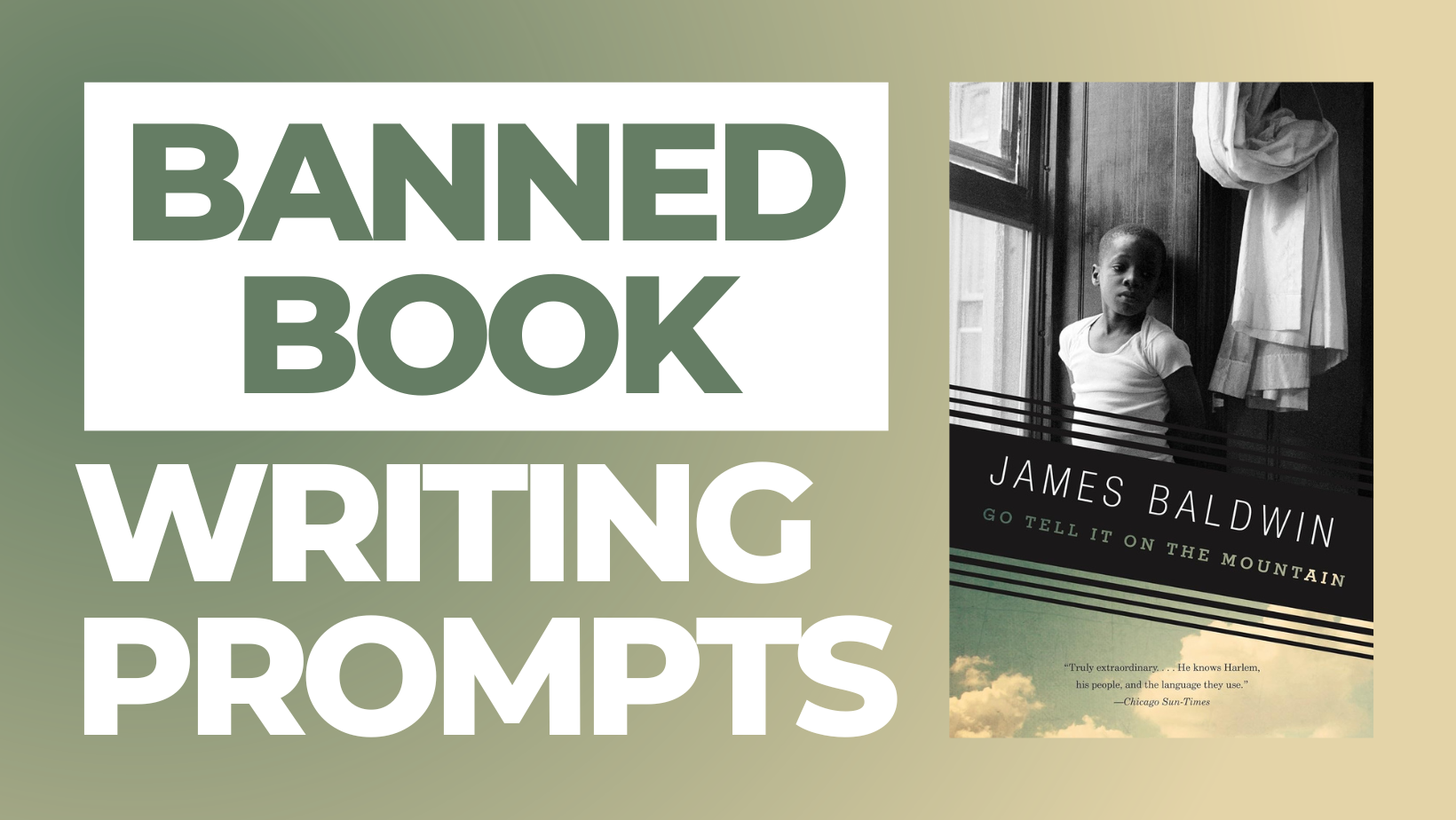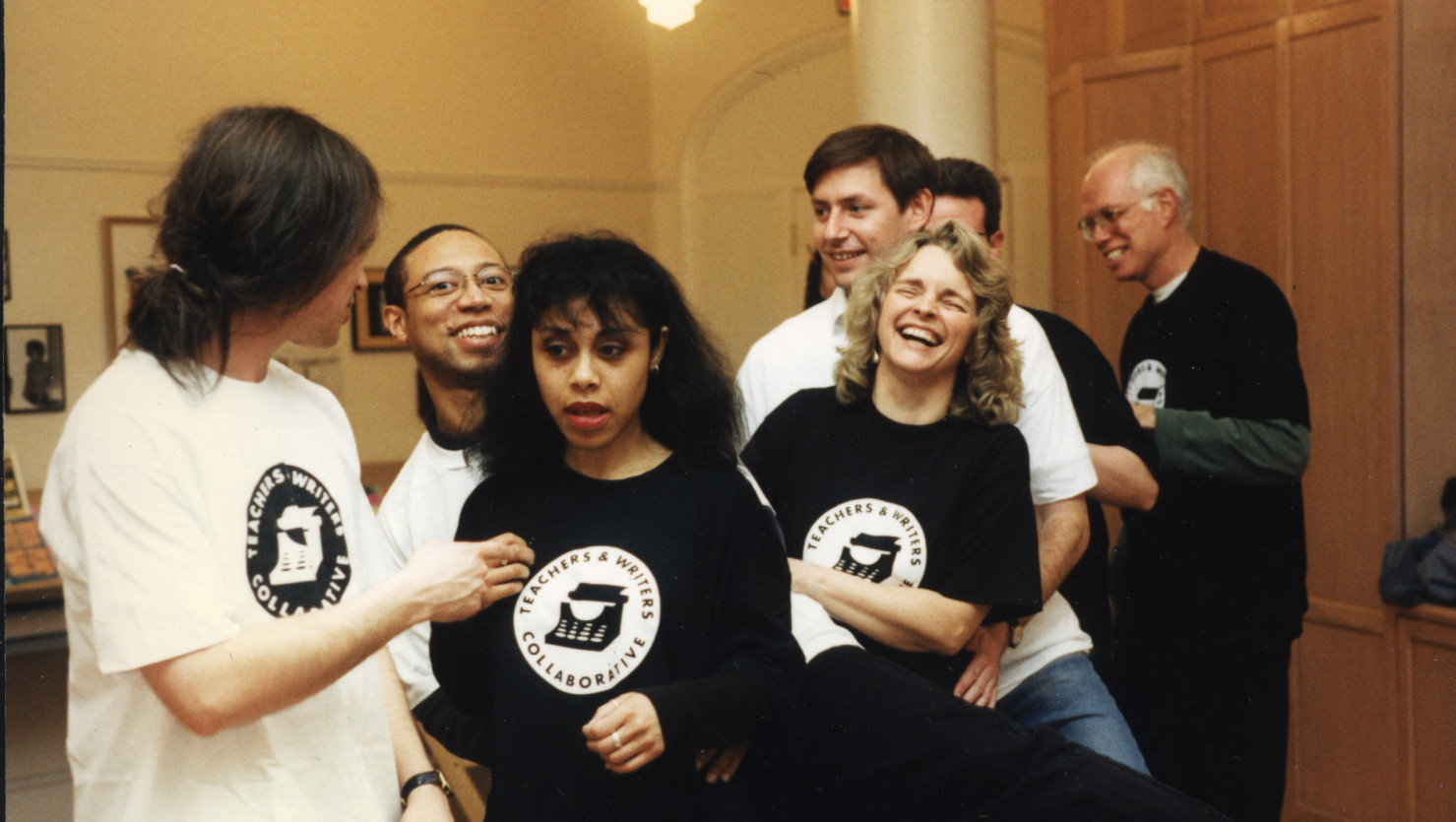The first conversation I had with Willow, we were peeing in some bushes in a Santa Cruz city park. Orientation dragged on for Sierra Institute, the backpacking field studies program where she was a teacher and I was a student, and the bushes were the only facilities. “So you know my friend Elaine,” she said, squatting. That was about as small-talky and shallow as things ever got.
I was a 19-year-old late-bloomer who wore cargo pants and crewneck sweaters from free boxes. I liked writing poems and climbing trees and learning about ancient cultures that weren’t capitalist patriarchies, and I struggled to find common ground with my classmates at Stanford. I’d considered bailing on the whole place when I saw a flyer for Willow Abel’s class: two months of studying nature philosophy and religion in the California wilderness for college credit.
It was a deeply profound experience. Sitting around camp, deep in the woods, we read ecofeminist texts and deep ecology texts and thought about environmental justice. We read poetry: Walt Whitman, Gary Snyder, Li Po, Pattiann Rogers, Basho. Willow led us in creative writing exercises. We invented games. We sat around and told everyone our life stories. Then later, we told our secret life stories, stories about abuse, abortions, bulimia, mentally ill parents, generational trauma, depression, stories that in some cases had never been told. We created a grief ritual, which we did together, holding each other through our pain.
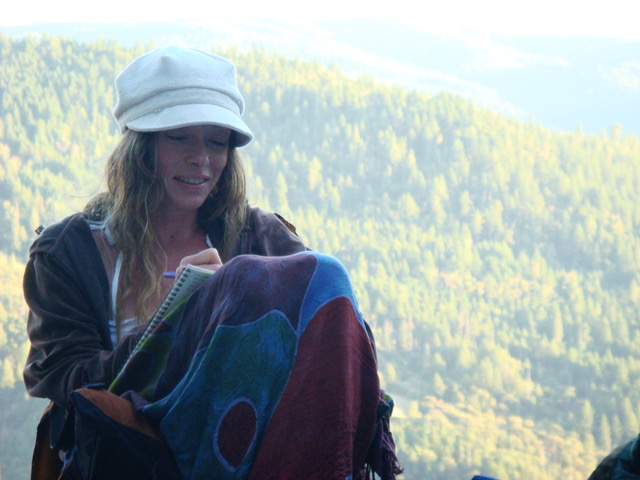
It was powerful to live on earth time, to wake up in an abandoned apple orchard and breathe in the mist, to go to the river for water and the forest to relieve ourselves, to swim then sit on the rocks while tiny blue butterflies drink water off our skin. Two decades later, I still draw nourishment from this time in the wild. And the group itself was a piece of the magic. I learned how to be part of something. I learned I belonged.
It was the woods and the group, but it was also Willow. Willow who held space, Willow who asked slow questions that nudged us towards who we were, Willow who made sure none of us died.
Willow isn’t some kind of super-human professor God. She is a human who struggles to be human. She would be more at ease as a deer or maybe a wood nymph. She needs a great deal of solitude and fluidity, a bit like a cat. She holds dreams of us all just living in the wilderness forever, of the earth being healed. She remains firm in these ideals even when they make living in the world harder. Willow taught me that one job of a teacher is to hold up a possibly impossible vision of what humans are capable of, to say Why not? Let’s try. To stoke instead of dampen students’ imagination.
Willow taught me that one job of a teacher is to hold up a possibly impossible vision of what humans are capable of, to say Why not? Let’s try. To stoke instead of dampen students’ imagination.
Willow approached us with curiosity, expecting to learn from us. Most of all, Willow respected us as people. She met our ridiculousness with delight and our pain with tender presence. She saw us.
Do you ever consider wearing dresses? she asked me.
I have a skirt, I said.
Not a skirt, a dress. I picture you in like a long green dress with a lace-up bodice.
Seriously? I laughed, secretly delighted.
Writing this down, it sounds like a weird thing for a teacher to say. But it felt like a mirror she held up that showed me I could express my inner self, that it was OK to be feminine, that I didn’t have to be invisible to be safe. It was a mirror I needed.
Willow mirrored so many things to me. You are a woman who will never forget what it means to be a child, Willow wrote me. Somewhere in a deep glade is a pool where fairies look and rejoice in your existence. For years, when I felt sad or lost, I’d take out the slip of paper with these words in Willow’s neat script. It meant something to have been seen in this way, where what felt like a liability (my late-bloomer awkwardness) was a strength, and the language of childhood magic could exist in my adulthood.
I wrote a series of poems from the point of view of an imagined girl living in the Oregon cabin whose ruins we camped nearby. You’re a writer, Willow said, and though I’d been writing poems and stories my whole life, her words made it true.
On the surface, Willow’s class wasn’t as academically rigorous as my Stanford classes. Student projects included body painting sessions and improv theater games. But those 10 weeks led me through the rest of my time at Stanford, into grad school, shaping the direction of my work and whole life.
It began to feel obvious and necessary to help young people experience themselves as creative beings who belonged in the world. A decade after Willow’s course, I founded a Frog Hollow School, a children’s writing program that I’ve directed ever since. Frog Hollow runs immersive language arts classes for homeschoolers that center creative writing and outdoor play. I love this work. I love watching children become writers and watching them relax into free play in nature. I love seeing them belong.
The longer I teach, the more clearly I understand that the real work of teaching isn’t to elucidate or expound, but to listen.
The longer I teach, the more clearly I understand that the real work of teaching isn’t to elucidate or expound, but to listen. Listening makes space for students to be themselves, ask real questions, be held accountable to the larger group, and feel how they belong in the world. Of course, there is the charismatic fire-’em-up performance side of teaching, but that isn’t all of it, and it isn’t as essential as I used to think. Teaching is more like conducting an orchestra than being the soloist. Sometimes it’s more like lying down on the stage as the orchestra plays. Teaching: a particular quality of public listening.
Willow is my model in that listening. I can see her, sitting in our class circle on the ground, her face shaded by her ever-present floppy white hat, not yet speaking. I can feel the inwardness and attunement that was in all her teaching, and I emulate it.
That listening happens when I take a breath and look around at my students, being present with them as fellow human beings. It’s the delight of reading a student’s poem back to them, savoring moments in it, finding places to nudge them further. It’s those moments when clock time doesn’t breathe down my neck, and I’m aware of the rain falling outside and my own secret sadness even as I’m attuned to my students. It’s there when I slow down class discussions, weighing not only intellectual engagement but how the discussion feels, as I make class a space that respects our emotions, our bodies, our need for fluid time, and the many ways we experience the world.
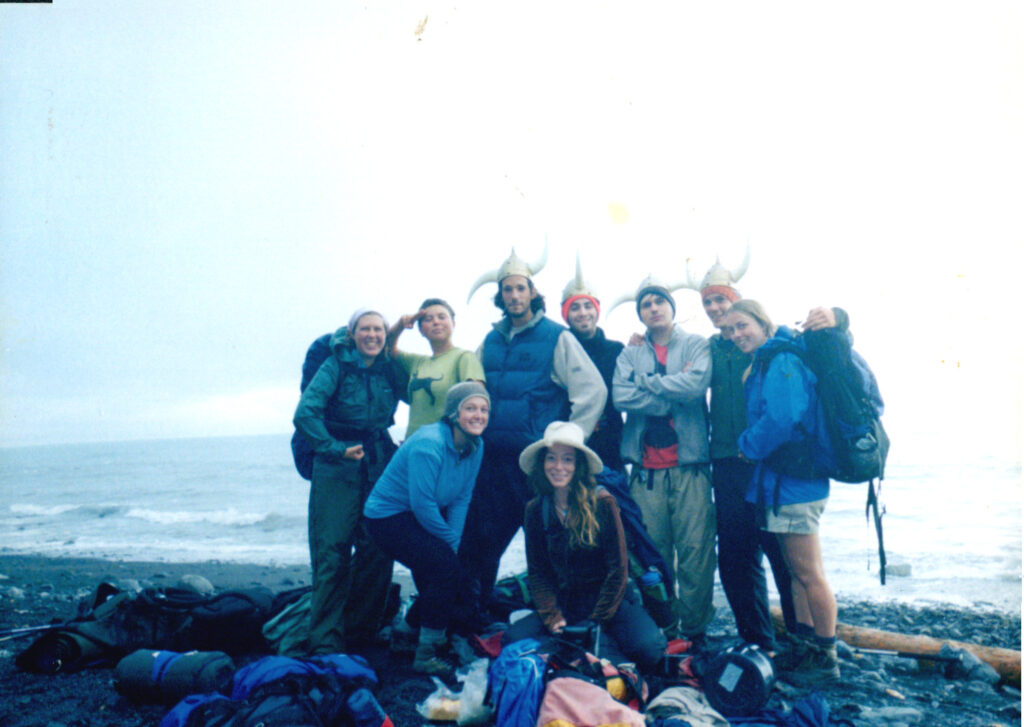
You’re being too critical, thinking too critically, Willow told us during one class discussion on the Lost Coast, a critique I’d never heard at Stanford. It’s OK to love things, she told us. To enjoy them without tearing them apart. In that spirit, when I teach poems with my students, we savor them, trying out the lines that strike us, being curious about their mysteries, then taking the spark of an idea we encountered in that poem to write our own poems. It feels respectful of both the students and the poems.
The Willow-voice in me (which is curious and gentle and full of humor) says many things that I find myself expressing unspoken as I teach:
I see you and appreciate you. In fact, I delight in you.
You’re fine how you are, and I know and expect that you are growing.
The wild pure heart in you that wants fantastical things is right and I honor it.
You have something to say, and I’m curious to hear it.
You belong here, and I know you will take that responsibility seriously.
Your feelings matter and are beautiful.
I see the pain in you and respect you in your tenderness.
Oh, you ridiculous human, I enjoy your ridiculousness.
Yes.
Willow’s influence on my life is enormous yet slippery because what she did was help me live as myself. Everything that Willow taught me I think I already knew somewhere deep and forgotten inside myself.
We go out into the back country to receive a boon, she told us that first day in the park. A boon that we take back to the front country. And so, what we were doing became mythic and bigger than ourselves. Our time in the wilderness was time away but always connected to our larger work in the world.
In that wilderness, I was nudged back towards the root of who I was and who I suppose we all are: a powerful, fallible, wise, changing, beautiful, challenged, creative, tender, lovable human who belonged to the earth.
And if I could name the work I want to do in the world, through teaching, writing, parenting, and living, it is to nudge humanity toward that root. To see us honestly in all our mess and also to see the possibility in us. To know it is possible for us to live in right relationship with the planet, each other, and our wild creative tender selves. I’ve felt how that feels. I bring that feeling back from the mountain: a boon.

Becca Rose Hall
Becca Rose Hall is the director of Frog Hollow School, a writing program for children offering classes in Seattle and online. She writes the Substack newsletter A Few Crooked Words about helping kids love writing. Her work has appeared recently in Orion Magazine, Third Coast, Mutha Magazine, and Pacifica Literary Review. She has received support from Community of Writers, Writers Lighthouse, Arts Omi, and Zvona i Nari; has been a contributor at Bread Loaf and Sewanee; and was the Writers’ Lighthouse Emerging Fiction Fellow in 2019. She recently finished writing a novel.

